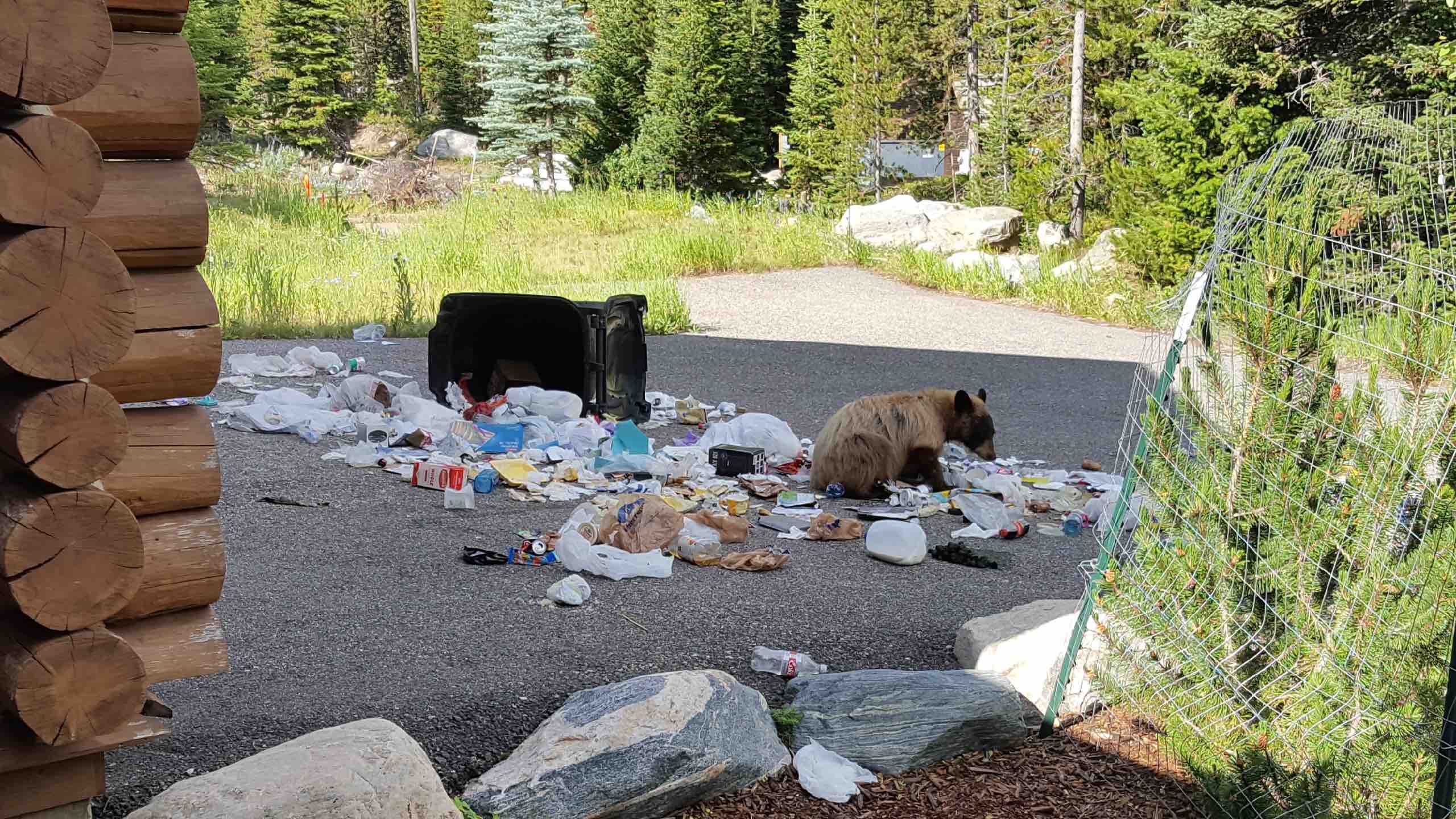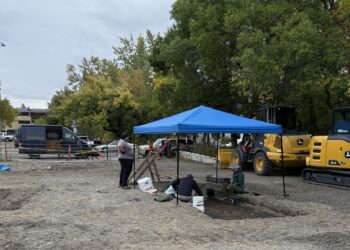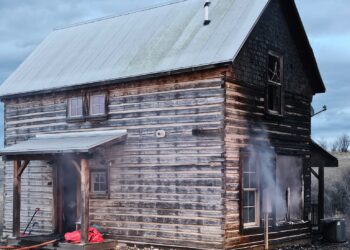Homeowners advised to report when garbage can malfunctions
By Jessianne Wright EBS Contributor
BIG SKY – On the weekend of July 21 and 22, three black bears raided the contents of a garbage can in Big Sky. The vandals left a mess in the driveway, upset property owners, and added yet another mark to the list of human-bear conflicts.
One of the three was a subadult sow with a long history of trouble, and on July 24, she was captured for relocation. At three-years-old, the sow has likely spent its first full year on its own, kicked off from its mother. She was relocated from Big Sky to Forest Service land on the north end of the Bridger Mountains.
“These bears get a food reward, they become a nuisance, they get bolder, and then people start complaining. We’re obligated to deal with the bear,” said Kevin Frey, a bear biologist for Montana Fish, Wildlife and Parks.
“This bear will get relocated one time and if it becomes a nuisance at the new location, it probably won’t have much of a future,” Frey added. “When the world was bigger and quieter, it was probably a higher success rate, but with so many people, it’s hard to keep a bear from getting into trouble again.”
According to Frey, this recent incident occurred after a vacationer used a malfunctioning bear-resistant garbage can. “From what we gathered, someone knew the latch wasn’t working properly,” Frey said.
“If you have a problem with the garbage can, either call for a replacement or repair, or, if you have a garage, put the garbage in there,” he added.
To combat the high incidence of human-bear conflicts in our area, the Wildlife Conservation Society developed the Bear Smart Big Sky program in 2013, aiming to increase awareness about how to live in bear country.
Efforts from this program include initiatives to reduce bear attractions such as trash, bird feeders, grills, coolers and backyard chickens.
Kris Inman, a representative from the Wildlife Conservation Society, said that when the program began, 20 percent of homeowners in Big Sky voluntarily used bear-resistant garbage cans. Today, through partnerships with many homeowners’ associations, 70 percent are now required to use these bear-safe products.
The challenge, Inman said, is that homeowners need to understand why bear-resistant receptacles are important and how to use them.
“For new visitors, they may not be accustomed to living in bear country. They might not be aware they’re in bear country or they don’t realize there are things they can do,” she said. “There’s a user error to bear-resistant trash cans. It can’t be over filled, you can’t leave garbage beside it, it has to be latched properly.”
Visit wcscommunitypartnerships.org/bearsmartbigsky to learn more about living in bear country.














